From Jes Staley's links to Jeffrey Epstein to a weird metal ball washing up on the beach – Here's your February 22 news briefing
Some recently unsealed court documents include disturbing allegations about Jes Staley.
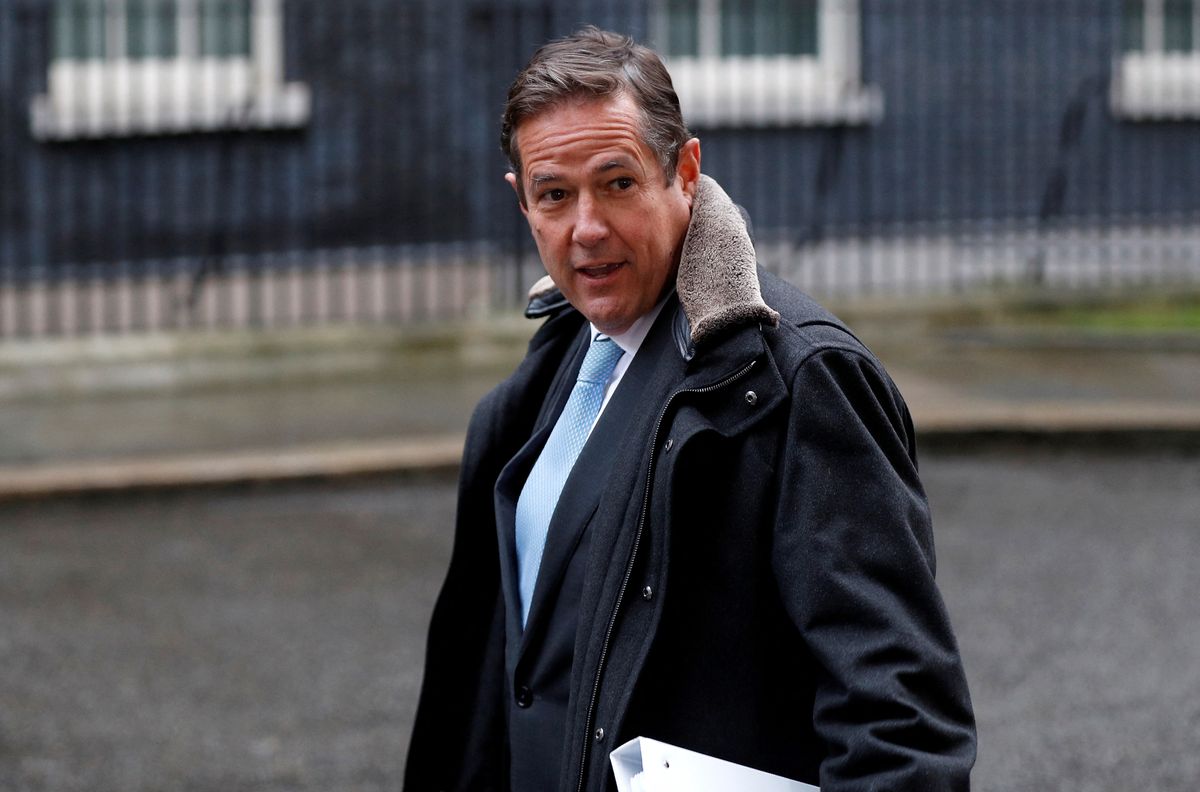
A few minutes every morning is all you need.
Stay up to date on the world's Headlines and Human Stories. It's fun, it's factual, it's fluff-free.
To start off, we're looking into:
Ex-CEO of Barclay’s linked to Epstein
The backstory: To give you a quick refresher, in 2008, multimillionaire hedge fund manager Jeffrey Epstein faced charges of sexual misconduct, but he managed to avoid federal charges by pleading guilty to state prostitution charges.
Then, in 2019, he was arrested again on federal charges of sex trafficking minors. But he was found dead in his jail cell before he could stand trial, and his death was ruled a suicide.
More recently: Some recently unsealed court documents include disturbing allegations about Jes Staley, the former CEO of Barclays, and his connection to Epstein. Before joining Barclays, Staley was in charge of JPMorgan Chase's financial relationship with Epstein for about 15 years. Now, the US Virgin Islands government has sued JPMorgan Chase for allegedly helping Epstein in his sex trafficking scheme.
The development: JPMorgan Chase is accused of ignoring red flags about Epstein's accounts and "turning a blind eye" to his illegal activities. The complaint says Staley exchanged more than 1,000 sexually suggestive emails with Epstein from his work email between 2008 and 2012. The court docs suggest Staley and Epstein were close pals and that Staley may have been involved in Epstein's trafficking scheme.
Some of the emails allegedly included photos of young women in suggestive poses and used the names of Disney princesses for them. For example, one email from Staley to Epstein allegedly said, "Say hi to Snow White," with Epstein responding, "What character would you like next?"
Hermès is thriving despite the pandemic
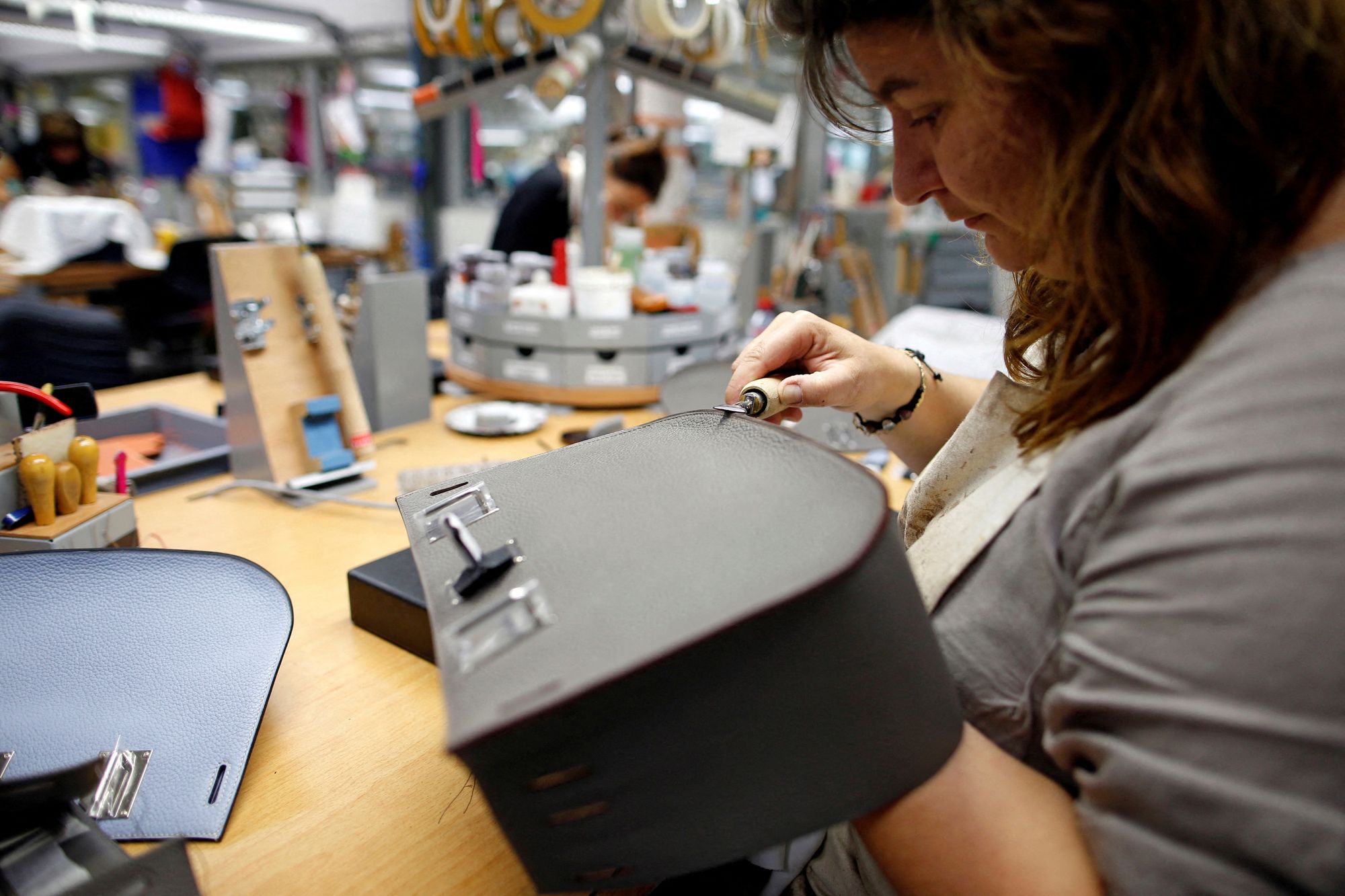
The backstory: Luxury goods brand Hermès has been making waves with its highly sought-after Birkin and Kelly handbags, which can fetch tens of thousands of dollars. The demand for these exclusive bags has been so overwhelming that the company said it would expand its production in France through 2024. But buyers still face long waitlists, driving many to the resale market, where they sometimes pay even more to add these coveted pieces to their collections.
More recently: Despite the challenges posed by the pandemic, Hermès has continued to perform well. The company saw sales boost by around 25% in the Asia-Pacific region (excluding Japan), and it opened a new store on Madison Avenue in New York City last October. It's doing well enough to announce it would raise its prices by 7-10% over the coming year.
More development: Hermès recently announced some outstanding sales and profit forecasts. Sales in the last quarter of 2022 rose by 23% from the previous year, fueled by wealthy Chinese customers snapping up Hermès bags. In the fourth quarter, Hermès brought in €2.99 billion (US$3.2 billion), and its yearly recurring operating profitability hit an all-time high of 40.5%. Meanwhile, other luxury brands are struggling to keep up due to upheavals caused by COVID.
Russia’s nuclear threat
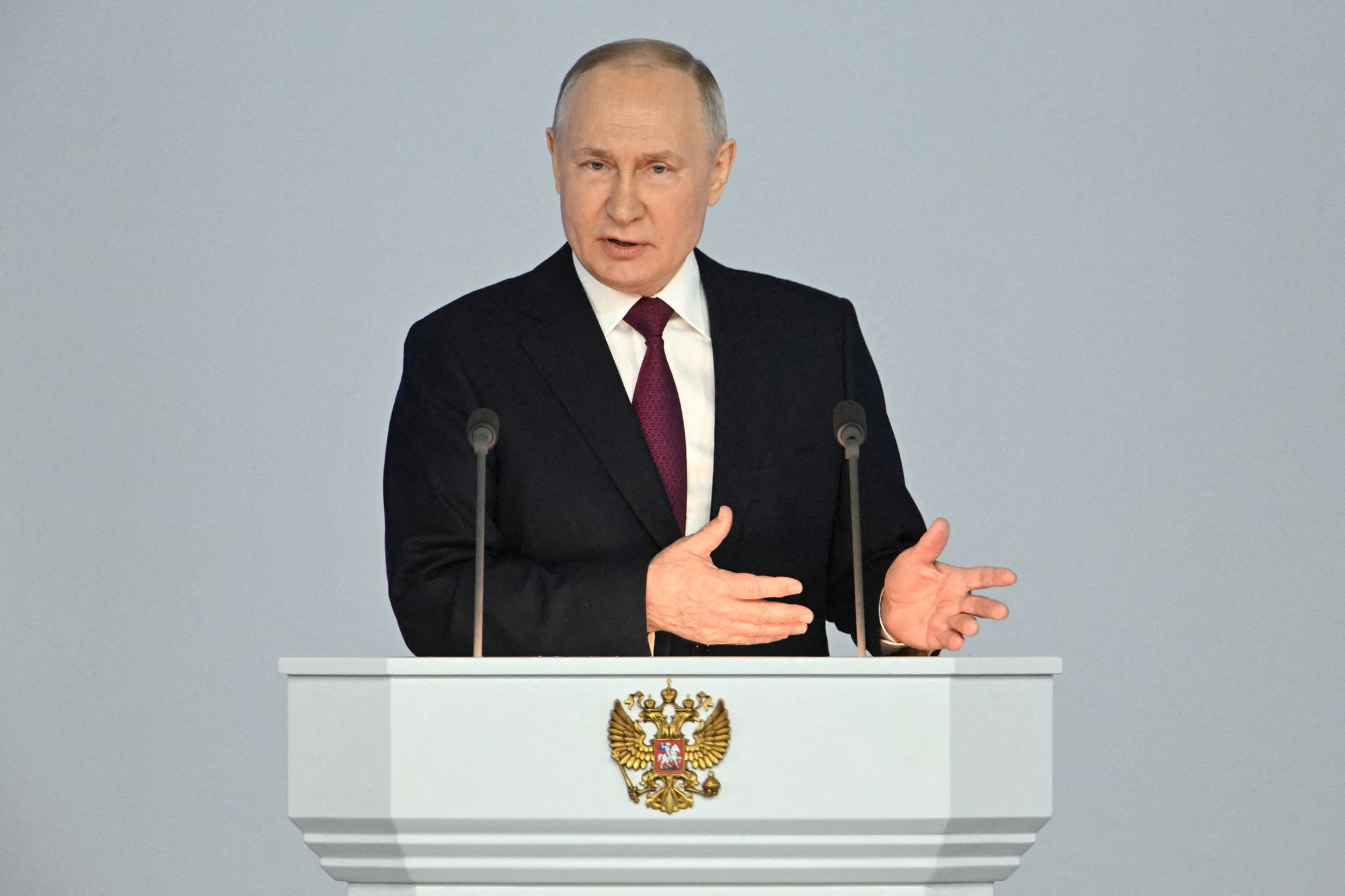
The backstory: The US and Russia have 90% of the world's nuclear warheads. So, in 2010, former US President Barack Obama and former Russian President Dmitry Medvedev signed the New Strategic Arms Reduction Treaty (START). This agreement limits how many strategic nuclear warheads both countries can deploy, meaning they are ready to use. With this treaty, both countries can check one another's arsenals for compliance.
More recently: But things have gotten a bit sticky since Russia invaded Ukraine about a year ago. According to the US, Russia has already violated the agreement by not allowing inspections. Putin has also hinted that Russia could use a nuclear weapon if provoked, basically saying he'd be open to using them if things continue to escalate with the West in Ukraine.
The development: On Tuesday, Russia suspended its part in the New START treaty, which is the last nuclear arms pact between Russia and the US. Putin announced this move during his state-of-the-nation address. He also said Russia isn't completely withdrawing yet, and it would still respect the caps on nuclear weapons and provide info about test launches as previously agreed with the US.
During his speech, Putin also suggested that Russia and Ukraine are victims of Western manipulation and the war was started by NATO's expansion. Putin also said that Russia would be ready to conduct nuclear weapons tests if the US does, which would go against a Cold War-era global ban on these tests.
To end, we'll look into:
Have we found a cure for HIV?

HIV (human immunodeficiency virus) attacks the body's immune system and can lead to AIDS (acquired immunodeficiency syndrome) if left untreated. It's spread by contact with certain bodily fluids of someone who has it, often through unprotected sex or sharing drug needles.
With advancements in treatment, it's more possible now than ever before to lead a healthy life if you have HIV. But still, HIV and AIDs are major health concerns, especially in developing regions. Today, HIV affects more than 30 million people around the world. It's killed over 40 million people so far. The WHO African Region is the most affected, with 25.6 million people living with HIV in 2021, and the region makes up almost 60% of new infections globally.
The good news is – curing HIV is becoming a reality.
After receiving stem-cell transplants as a cancer treatment, five former HIV patients are now cured and free of the virus. The fifth person confirmed to be HIV-free is a 53-year-old man in Düsseldorf, Germany.
HIV can be managed by something called antiretroviral therapy (ART). This calls for a combination of drugs that stop the virus from being copied into the cell's DNA. Other drugs stop the virus from maturing or block viral fusion, which makes it so HIV can't infect new cells. ART isn't a cure, but it is really important for keeping the virus controlled. In fact, many patients managing HIV with ART live an average lifespan, and it can reduce virus levels low enough so they aren't transferred to someone else. But, it's an expensive treatment that many people don't have access to or cannot afford.
"HIV has been a tough nut to crack," says Marshall Glesby, an infectious disease specialist at Weill Cornell Medicine and a co-author of a recent HIV cure case study. "But there is incremental progress being made in terms of our understanding of where the virus hides within the body and potential ways to purge it from those sites."
Right now, there are two strategies that scientists are working on to cure the virus – treatment-free remission and viral eradication.
The first approach is geared toward controlling HIV without taking daily meds. Researchers are looking into antibody therapies and therapeutic vaccines for this method. Basically, these treatments would help the body's immune system fight off the virus.
Viral eradication is all about using protein signals from cells that drugs would be able to recognize and kill, thereby completely removing HIV from the body.
The breakthrough cure cases have been viral eradication through combination treatments like chemotherapy and stem cell transplants. For now, these treatments are pretty high-risk, so they're only going to be used for a select few people. But, this progress could help "inform future strategies for achieving long-term remission of HIV-1," according to researchers from Düsseldorf University Hospital.
In other news ...
📉Stocks: MSCI’s global gauge of stocks is down 1.54% at 2740.38 at the time of writing.
- Dow Jones lost 2.06% to 33,129.59.
- Nasdaq Composite dropped 2.5% to 11,492.30.
- S&P 500 fell 2.0% to 3,997.34.
- Hang Seng Index declined 1.71% to 20,529.49.
🧠Some quick factors to bear in mind:
- After the Presidents' Day holiday, the US big three indexes dipped on Tuesday with concerns that the Fed might continue its aggressive monetary policy for longer as investors wait for more data this week.
- Adding to the bearish sentiment, the strong economic data that's been coming in showed that US business activity stabilized in February, reaching its highest level in eight months.
- This week, investors are watching on Wednesday for the minutes to be released from the last Fed meeting, as well as other key economic data like February's GDP growth rate on Thursday and Personal Consumption Expenditures Price Index (PCE) on Friday.
- Meanwhile, in Hong Kong, stocks plunged on Tuesday due to concerns about the Fed's future policy path, and tech stocks like JD.com dragged them.
- JD.com's stock price tumbled after news that it's reportedly planning a US$1.5 billion subsidy campaign to compete with a rival e-commerce platform owned by PDD Holdings.
👄Some comments and chatter:
- “A tight labor market and resilient consumer demand could goad the Federal Reserve to maintain its rate hiking campaign into the summertime. Investors should expect volatility until markets and central bankers come to agreement on the expected path for interest rates,” said Jeffrey Roach, chief economist for LPL Financial.
- “Stocks and crypto are starting to look shaky, and the conditions that made markets extra susceptible to ‘less bad’ news are disappearing,” said eToro US investment analyst Callie Cox.
🛢Oil: Even though Russia announced a 5% cut in oil production for March, investors were still worried about how the global economy was doing. That concern was enough to cancel the good news and drove investors to cash in on Monday's gains. With this, US crude lost 0.2% to US$76.16, and Brent dropped 1.2% to US$83.05 per barrel.
👛Bitcoin: At the time of writing, Bitcoin is down 1.90 % to US$24,301.16.
💔Another earthquake aftershock: Two weeks after earthquakes devastated much of Turkey and Syria, a 6.3-magnitude aftershock was registered on Monday, with 90 smaller aftershocks following. Almost 300 people were injured. Six deaths have been reported so far.
💼China's top diplomat visits Russia: No top Chinese diplomat has visited Russia since the beginning of the war in Ukraine. On Tuesday, Wang Yi, China's chief foreign policy advisor, arrived in Moscow to finish up an international tour. On Wednesday, he'll talk with Russian Foreign Minister Sergey Lavrov, but we're not sure if he will see Putin.
🤝Northern Ireland's Brexit deal: The UK exited the EU in 2020, but it's still dealing with complications when it comes to Northern Ireland, which is a part of the UK but on the same land as Ireland (the whole history is complicated). There have been weeks of talks recently to create a softer border. On Tuesday, the EU's Brexit chief said they're almost done figuring out easing post-Brexit trade rules for Northern Ireland.
🥼Gene-editing scientist headed to Hong Kong: In 2019, Chinese scientist He Jiankui was sentenced to prison and given a heavy fine for secretly editing the genes of three babies, violating Chinese laws on scientific research and practicing medicine without a license. Now, He is headed to Hong Kong on a talent visa to study gene therapy for rare hereditary diseases with universities there.
🛶Venice canals run dry: Parts of Italy are currently seeing a major drought. Now, Venice's famous canals are all but dried up because of the drought and unusually low tides.
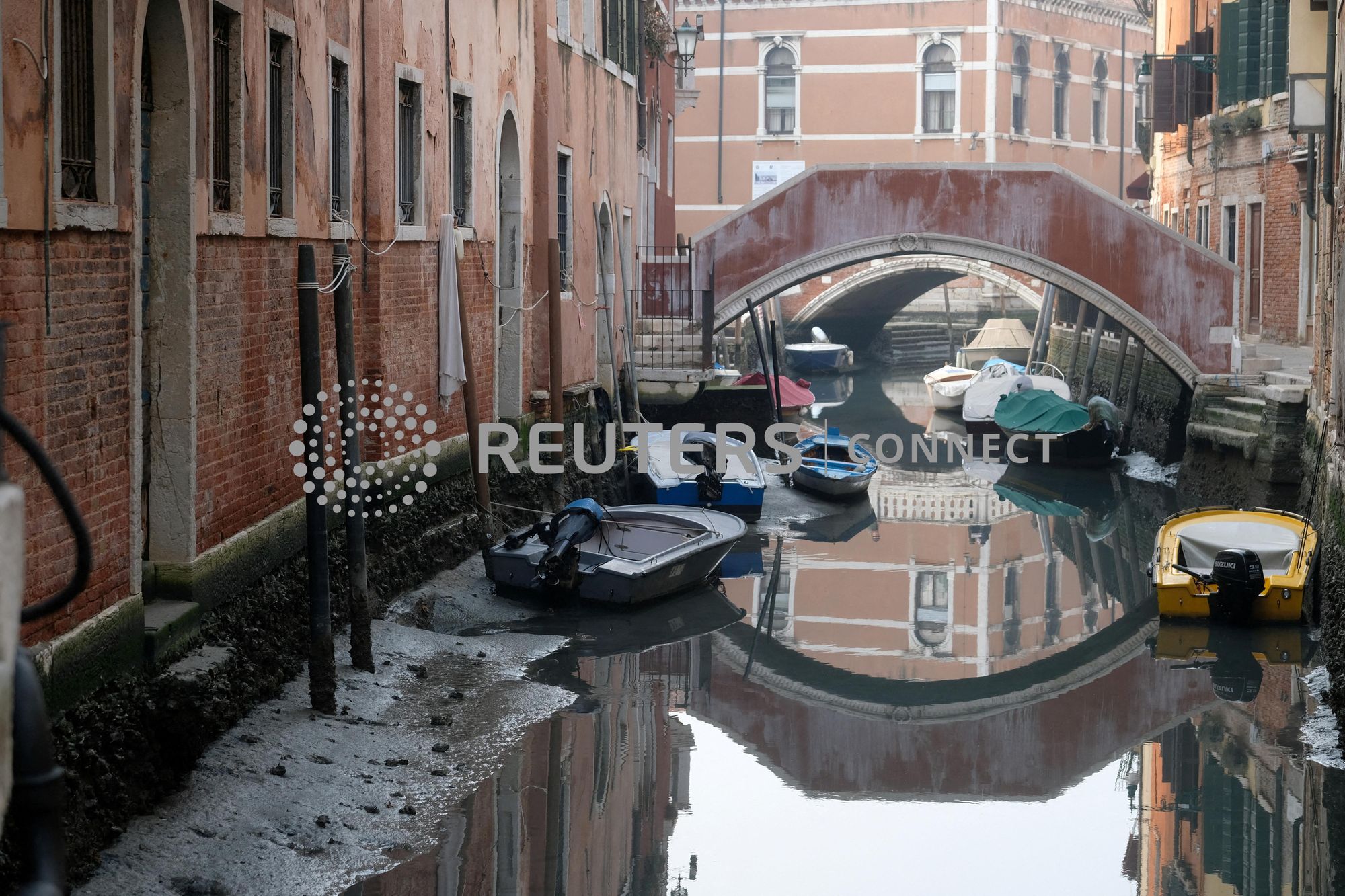
🚀Russia's mission to bring stranded astronauts home: Three people are at the International Space Station without a ride home. Their original shuttle experienced a coolant leak that took it out of service. So, Russia's space agency is preparing a special flight to bring two Russian cosmonauts and an American astronaut back to Earth.
🐼Japan sends panda back to China: China technically owns all the giant pandas on Earth. On Tuesday, Japanese-born panda Xiang Xiang was sent back to China, as she was only on loan based on this panda ownership rule. At Tokyo's Ueno Zoo, 2,600 visitors arrived to wish her goodbye on Sunday, but 60,000 had applied for those spots to see her off.
🩸Spain's menstrual leave: Last week, Spain became the first European country to approve menstrual leave. This means women can call in sick "in case of incapacitating menstruation" and get 3-5 days off until they feel better.
📅Latest four-day workweek trial: We mentioned the four-day workweek a couple of months back. Now, a new trial of this reduced schedule has been published. After testing across 60 UK firms with 3,000 employees in total, more than 90% of the companies will continue with the shortened working week because it's been found to be more productive.
🎮Call of Duty deal: Last year, Microsoft announced plans to bring the popular Call of Duty video game to Nintendo consoles. Now, a contract has been signed so that Nintendo players can access Call of Duty for the next 10 years.
📱Original iPhone goes to auction: Remember when the first iPhone was released in 2007, making waves everywhere? Well, an unopened first-generation iPhone just sold at auction for US$63,356.40. The woman who owned it had been given it as a gift but hadn't opened it because she didn't want to get rid of her phone at the time.
👽We're hoping for aliens: So, a giant metal sphere washed up on shore in Japan, alarming authorities and pretty much everyone else. They sent in a bomb squad, x-rayed the thing, and they've determined it's no threat. But they don't really know what it is.
A mysterious metal ball spotted on a beach in Hamamatsu City this week prompted local police to scramble the bomb squad. A careful examination revealed it is not a threat -- but shed no light on what it actually is. pic.twitter.com/ytClWsP0bw
— NHK WORLD News (@NHKWORLD_News) February 21, 2023
Written and put together by Joey Fung, Vanessa Wolosz, Shebby Farooq and Christine Dulion

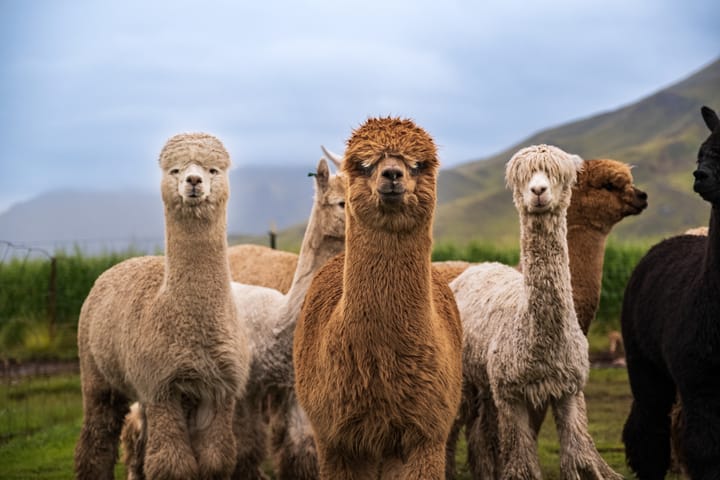

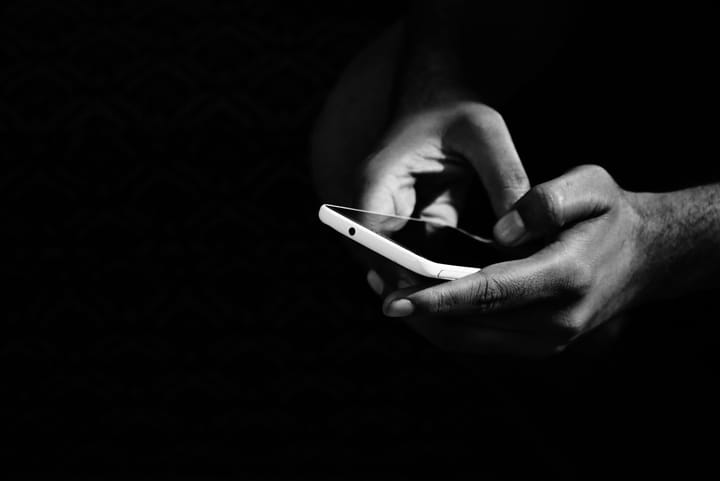
Comments ()